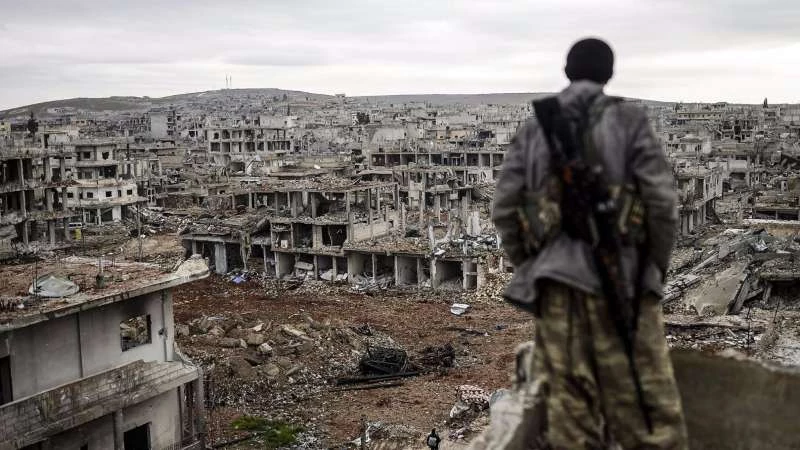US Defence Secretary James Mattis, the most authoritative voice on the conflict within the Trump administration, made two important statements recently. The first was his remark in the downstream of the capture of Raqqa that the Pentagon intended to keep its forces in Syria.
The remark created uproar, as it signified a shift from Washington’s earlier policy – that the US military would leave Syria once Islamic State (ISIS) was defeated.
Last week, Mattis fine-tuned his earlier remark by confirming the Turkish version of a phone conversation between presidents Donald Trump and Recep Erdogan on November 24, in which the latter was reportedly assured of the US ending its military support for Syria’s Kurds.
Mattis added: “That fighting (in northern Syria) is now dropping off, in terms of the need for offensive capability. Consistent with that, we’re changing the composition of our forces to something that supports the diplomats and the Geneva process… And so what we’re doing is, we’re changing our stance right now, to support the diplomats. In other words, we’re going from a military-led effort, there, to… set the conditions for achieving a diplomatic solution… And so the troops are changing their stance as a result… That includes with our allies… You’ve seen the Euphrates river valley be the demarcation line between the regime forces and the forces that we are supporting to defeat ISIS.”
Mattis spoke of US troops changing their “stance” – not of withdrawal from Syria. This is one thing. But the punch line is in his “demarcation line” along the Euphrates valley. (The Syrian militia has since declared its capture of the entire stretch of Syrian territory to the east of the Euphrates.) In sum, Mattis was announcing a unilateral ceasefire in northern Syria between the Kurdish militia and government forces (backed by Russia, Iran and Hezbollah.)
At the same time, the southern theatre is hotting up: witness the recent Israeli air strike near Damascus on what Tel Aviv claimed to be Iranian targets, and its explicit threat of military intervention to check the “Iranian presence” in Syria.
This coincided, of course, with the extraordinary attempt by CIA director Mike Pompeo to get through to the commander of the Iranian Quds Force Gen. Qasem Soleimani with a “note” – since the latter “had indicated that forces under his control might in fact threaten US interests in Iraq.”
On Sunday, US National Security Advisor HR McMaster openly concurred with the contents of a video clip released the previous day by the Israeli prime minister’s office. The clip detailed alleged Iranian plans to control a land corridor to the Mediterranean Sea.
What emerges is a calibrated effort by the US and Israel to ratchet up pressure on Iran in both Syria and Iraq, even as Washington keeps Moscow engaged on the diplomatic track regarding the Geneva process (and its offshoots), and is accommodating (partly, at least) Turkish concerns over US support for Kurds. Simply put, it’s a policy to placate Turkey, ignore Russia and punish Iran.
The implicit warning by Mattis against any attempt to change the military balance in northern Syria factors in that the US-led Kurdish militia may have outwitted the Syrian regime. Kurds, who form less than 10% of Syria’s population, now control 20-25% of territory and major oil fields in Dier Ezzor – and, importantly, Euphrates water resources as well.
To borrow the famous Afghan Taliban saying, Washington estimates that while Damascus and Tehran may keep the clock, Mattis sets the time.
Mattis is an avid reader of books and apparently has a large private library. He has possibly read books on chess and knows the game as well as the fabled Russian grandmasters. But then, Tehran also plays chess. Some say the ancient game had Persian origins.
At any rate, the speaker in Iran’s parliament, Ali Larijani, said on Monday: “The war on terror is not over yet… And as long as it is necessary, we will continue to provide assistance to them (Syria and Iraq)… Iran and Russia are at the frontline of the war on terror, while others only talk about it.”
Interestingly, Larijani, who is a key figure in Iran’s security and foreign policy establishment, said this in an exclusive interview carried by TASS, Russia’s state news agency. To be sure, Mattis’ unilateral ceasefire is up for grabs; but then again, everything is chancy in Syria.



التعليقات (0)